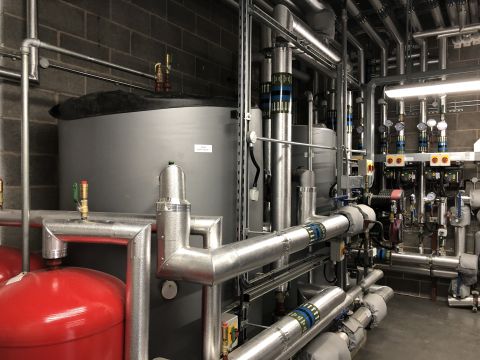
Heat pumps, heat networks and direct electric heating - should Government mandate where they are used?

One element which is clear in both the consultation and the accompanying SAP 10.1 BETA software, is the strong support for the adoption of heat pumps, ambient heat loops and direct electric heating within new developments.
But should Government mandate their application within certain developments?
Why these solutions?
The UK has committed to becoming net-zero by 2050 and phasing out the use of high-carbon fossil fuels within new homes by 2025 (hence 2025 is the start of the Future Homes Standard). Government is therefore focussing on heat pumps, heat networks and direct electric heating to fill the resulting specification gap and encouraging the development of these supply chains over the next five years.
These technologies have been chosen due to the low carbon emissions associated with the electricity grid and the high efficiencies (and low primary energy) of renewable technologies. Heat networks can provide a solution to reduce demand on the grid in areas of high density or restricted infrastructure, providing additional compliance benefits when run at a low temperature from a low carbon plant.
Should Government mandate their use?
Electrical solutions provide one of the best pathways to decarbonising heat, especially where renewable energy can play a large role within energy generation, both onsite and at a national level. However, there will be no ‘silver bullet’ for ensuring that new homes are heated in a low carbon way.

For some property types, such as small houses, a heat network or heat pump may not be the best solution due to cost effectiveness and design viability. This also becomes the case where regional differences in energy sources develop, such as off-gas grid areas with access to a large abundance of renewable energy and regions where hydrogen networks are taking shape.
To ensure that the correct technology is specified, Government should set targets but remain largely technology agnostic. This will encourage new innovations and allow industry to use the best technology mix for their project, allowing projects to benefit from specifying hybrid solutions.
Hybrid solutions do not just refer to a gas boiler and heat pump combination. Instead, this term can be applied to any heating system which contains a mix of technologies for hot water and space heating. By combining technologies in this way, the development can utilise a cross section of benefits to aid in achieving compliance, whilst having greater flexibility in HVAC specification.
Learn more about specification options under proposed 2020 regulations
To help explain which HVAC technologies could benefit your projects under future Part L and Part F 2020 targets, we have launched a new CPD: The Future Homes Standard consultation and its impact on 2020 HVAC specification. This hour presentation has been created using research into legislative changes and SAP 10.1 modelling and is CPD UK accredited.
We also offer other CPDs on a variety of technologies increasing in specification, including presentations on heat pumps, ambient networks and fully electric hot water heat pump solutions. Contact us to learn more or to book a meeting with your regional Business Development Manager.











